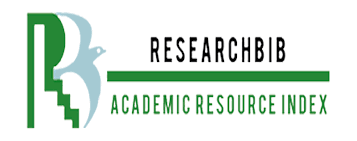La resiliencia y estrategias de afrontamiento en una muestra de consumidores y no consumidores de sustancias psicoactivas
DOI:
https://doi.org/10.35622/j.rep.2023.03.005Palabras clave:
consumo de sustancias, estrategias de afrontamiento, jóvenes, resilienciaResumen
Estudio de enfoque cuantitativo, de diseño no experimental de nivel correlacional, con un diseño transversal, se orientó a describir las estrategias de afrontamiento y resiliencia en dos grupos de jóvenes consumidores y no consumidores de sustancias psicoactivas. Se empleó el Inventario de estrategias de afrontamiento, diseñado por Tobin et al. (1989) y la Escala de resiliencia SV-RES de Saavedra y Villalta (2008). Los resultados sugieren que la combinación de estrategias de bajo apoyo social, aislamiento social, y altos niveles de expresión emocional al parecer puede estar asociada con el consumo de sustancias como una posible vía de escape para el manejo de situaciones estresantes. En cuanto a resiliencia, los resultados concuerdan con otros estudios que muestran niveles más bajos de resiliencia en la población de consumidores de sustancias psicoactivas. Finalmente, esta investigación permite concluir que la resiliencia y adecuadas estrategias de afrontamiento son factores protectores que deben potencializarse en la población infantil y adolescente a fin de prevenir la conducta de consumo de sustancias como vía de escape a los problemas.
Estadísticas del Artículo
Referencias
Alarcón-Garavito, G., Burgess, R., Sanguinetti, M., Peters, L., & Vera, N. (2023). Mental health services implementation in Colombia – a systematic review. MedRxiv, 2023.01.17.23284625. http://medrxiv.org/content/early/2023/01/17/2023.01.17.23284625.abstract DOI: https://doi.org/10.1371/journal.pgph.0001565
Andersson, H., Wenaas, M., & Nordfjærn, T. (2019). Relapse after inpatient substance use treatment: A prospective cohort study among users of illicit substances. Addictive Behaviors, 90(July 2018), 222–228. https://doi.org/10.1016/j.addbeh.2018.11.008 DOI: https://doi.org/10.1016/j.addbeh.2018.11.008
Andreo, A., Salvador-Hilario, P., & Orteso, F. (2020). Ansiedad y estrategias de afrontamiento. European Journal of Health Research, 6(2), 213. https://doi.org/10.30552/ejhr.v6i2.218 DOI: https://doi.org/10.30552/ejhr.v6i2.218
Böke, B., Mills, D., Mettler, J., & Heath, N. (2019). Stress and coping patterns of university students. Journal of College Student Development, 60(1), 85–103. https://doi.org/10.1353/csd.2019.0005 DOI: https://doi.org/10.1353/csd.2019.0005
Campuzano, M., Reyes-Ruiz, L., Carmona, F., & Sarmiento, A. (2022). Psychoactive substance use prevention and reduction programs in university students: A systematic review. Journal of Positive Psychology & Wellbeing, 6(2), 1731–1746. http://journalppw.com
Cano-García, F. (2007). Adaptación española del Inventario de Estrategias de Afrontamiento. Actas Españolas de Psiquiatría, 35(1), 29–39.
Cano-García, F., Rodríguez-Franco, L., & García-Sevilla, J. (2007). Adaptación española del inventario de estrategias de afrontamiento. Actas Españolas de Psiquiatría, 35(1), 29–39.
Caravaca-Sánchez, F., & García-Jarillo, M. (2020). Perceived social support, resilience and consumption of psychoactive substances amongst inmates in prisons. Revista Española de Sanidad Penitenciaria, 22(2), 75–79. https://doi.org/10.18176/resp.00013 DOI: https://doi.org/10.18176/resp.00013
Castaño, G., Galeano, E., & Sandoval, J. (2022). Harm estimation from psychoactive drug use under MCDA principles and community perceptions in Colombia, 2021. Research Square, 12(2). https://doi.org/https://doi.org/10.21203/rs.3.rs-2206693/v1 License: DOI: https://doi.org/10.21203/rs.3.rs-2206693/v1
Cavicchioli, M., Movalli, M., Vassena, G., Ramella, P., Prudenziati, F., & Maffei, C. (2019). The therapeutic role of emotion regulation and coping strategies during a stand-alone DBT Skills training program for alcohol use disorder and concurrent substance use disorders. Addictive Behaviors, 98(April). https://doi.org/10.1016/j.addbeh.2019.106035 DOI: https://doi.org/10.1016/j.addbeh.2019.106035
Ciccirillo, F., Abrignani, M., Temporelli, P., Binaghi, G., Cappelletto, C., Lopriore, V., Cesaro, A., Maloberti, A., Cozzoli, D., Riccio, C., Caldarola, P., Oliva, F., Gabrielli, D., & Colivicchi, F. (2023). The key role of a Psychoactive Substance Use History in comprehensive cardiovascular risk assessment, diagnosis, treatment, and prevention. Cardiology, 257–268. https://doi.org/10.1159/000530246 DOI: https://doi.org/10.1159/000530246
Congreso de Colombia. (2006). Ley 1090 de 2006. Por lo cual se expide el Código Deontológico y Bioético y otras disposiciones. https://cutt.ly/8waZlhPS
Del Rio, A. (2022). New psychoactive substances and low-income countries: a burgeoning (and neglected) crisis. Clinica Terapeutica, 173(3), 224–225. https://doi.org/10.7417/CT.2022.2423
Deligianni, E., Daniel, O., Corkery, J., Schifano, F., & Lione, L. (2020). Impact of the UK Psychoactive Substances Act on awareness, use, experiences and knowledge of potential associated health risks of novel psychoactive substances. British Journal of Clinical Pharmacology, 86(3), 505–516. https://doi.org/10.1111/bcp.14123 DOI: https://doi.org/10.1111/bcp.14123
Emmerik-Van, K., Vedel, E., Kramer, F., Blankers, M., Dekker, J., Vanden-Brink, W., & Schoevers, R. (2019). Integrated cognitive behavioral therapy for ADHD in adult substance use disorder patients: Results of a randomized clinical trial. Drug and Alcohol Dependence, 197(December 2018), 28–36. https://doi.org/10.1016/j.drugalcdep.2018.12.023 DOI: https://doi.org/10.1016/j.drugalcdep.2018.12.023
Ersche, K., Meng, C., Ziauddeen, H., Stochl, J., Williams, G., Bullmore, E., & Robbins, T. (2020). Brain networks underlying vulnerability and resilience to drug addiction. Proceedings of the National Academy of Sciences of the United States of America, 117(26), 15253–15261. https://doi.org/10.1073/pnas.2002509117 DOI: https://doi.org/10.1073/pnas.2002509117
Feder, A., Fred-Torres, S., Southwick, S., & Charney, D. (2019). The Biology of Human Resilience: Opportunities for Enhancing Resilience Across the Life Span. Biological Psychiatry, 86(6), 443–453. https://doi.org/10.1016/j.biopsych.2019.07.012 DOI: https://doi.org/10.1016/j.biopsych.2019.07.012
Fishman, M., Wenzel, K., Vo, H., Wildberger, J., & Burgower, R. (2021). A pilot randomized controlled trial of assertive treatment including family involvement and home delivery of medication for young adults with opioid use disorder. Addiction, 116(3), 548–557. https://doi.org/10.1111/add.15181 DOI: https://doi.org/10.1111/add.15181
González-Yubero, S., Lázaro-Visa, S., & Palomera, R. (2021). Personal variables of protection against cannabis use in adolescence: the roles of emotional intelligence, coping styles, and assertiveness as associated factors. International Journal of Environmental Research and Public Health, 18(11). https://doi.org/10.3390/ijerph18115576 DOI: https://doi.org/10.3390/ijerph18115576
Higgins, K., O’Neill, N., O’Hara, L., Jordan, J.-A., McCann, M., O’Neill, T., Clarke, M., O’Neill, T., & Campbell, A. (2019). Evidence for public health on novel psychoactive substance use: a mixed-methods study. Public Health Research, 7(14), 1–150. https://doi.org/10.3310/phr07140 DOI: https://doi.org/10.3310/phr07140
Kidd, S., Grey, J., Torrone, E., & Weinstock, H. (2019). Increased Methamphetamine, Injection Drug, and Heroin Use Among Women and Heterosexual Men with Primary and Secondary Syphilis — United States, 2013–2017. MMWR. Morbidity and Mortality Weekly Report, 68(6), 144–148. https://doi.org/10.15585/mmwr.mm6806a4 DOI: https://doi.org/10.15585/mmwr.mm6806a4
Klimenko, O., Hernández-Flórez, N., Álvarez-Posada, J., & Paniagua-Arroyave, K. (2023). La ansiedad y su relación con las estrategias de afrontamiento en una muestra de universitarios en el marco de la pandemia de COVID-19 Anxiety and its relations with coping strategies in a sample of university students in the framework of the COVID-19 pan. Psicoespacios, 17. doi: https://doi.org/10.25057/21452776.1503 DOI: https://doi.org/10.25057/21452776.1503
Konaszewski, K., Niesiobędzka, M., & Surzykiewicz, J. (2021). Resilience and mental health among juveniles: role of strategies for coping with stress. Health and Quality of Life Outcomes, 19(1), 1–12. https://doi.org/10.1186/s12955-021-01701-3 DOI: https://doi.org/10.1186/s12955-021-01701-3
López-Ortíz, A., & Fernández-Flores, A. (2022). Situaciones de riesgo, estrategias de afrontamiento y autoconfianza en pacientes con drogodependencia en tratamiento residencial. Revista Electrónica de Psicología de La FES Zaragoza-UNAM, 12, No.24(24), 67–73.
Lugo-Armenta, J., & Pino-Fan, L. (2021). Inferential Reasoning Levels for t-Student Statistical. Bolema - Mathematics Education Bulletin, 35(71), 1776–1802. https://doi.org/10.1590/1980-4415V35N71A25 DOI: https://doi.org/10.1590/1980-4415v35n71a25
Marquez-Arrico, J., Río-Martínez, L., Navarro, J., Prat, G., Forero, D. A., & Adan, A. (2019). Coping strategies in male patients under treatment for substance use disorders and/or severe mental illness: Influence in clinical course at one-year follow-up. Journal of Clinical Medicine, 8(11), 1–15. https://doi.org/10.3390/jcm8111972 DOI: https://doi.org/10.3390/jcm8111972
Marusich, J., Gay, E., & Blough, B. (2019). Analysis of neurotransmitter levels in addiction-related brain regions during synthetic cathinone self-administration in male Sprague-Dawley rats. Psychopharmacology, 236(3), 903–914. https://doi.org/10.1007/s00213-018-5011-8 DOI: https://doi.org/10.1007/s00213-018-5011-8
Ministerio de Justicia y el Derecho. (2019). Estudio nacional de consumo de sustancias psicoactivas en Colombia. Informe final. OCD, 149.
Ministerio de Salud y Protección. (1993). Resolucion 8430. Congreso de La República de Colombia., 32(4), 1–19. https://doi.org/10.7705/biomedica.v32i4.1526
Motyka, M., & Al-Imam, A. (2021). Representations of psychoactive drugs’ use in mass culture and their impact on audiences. International Journal of Environmental Research and Public Health, 18(11). https://doi.org/10.3390/ijerph18116000 DOI: https://doi.org/10.3390/ijerph18116000
Nikbakhtzadeh, M., Ranjbar, H., Moradbeygi, K., Zahedi, E., Bayat, M., Soti, M., & Shabani, M. (2023). Cross-talk between the HPA axis and addiction-related regions in stressful situations. Heliyon, 9(4), e15525. https://doi.org/10.1016/j.heliyon.2023.e15525 DOI: https://doi.org/10.1016/j.heliyon.2023.e15525
O’Brien, B., Shrestha, S., Stanley, M., Pargament, K., Cummings, J., Kunik, M., Fletcher, T., Cortes, J., Ramsey, D., & Amspoker, A. (2019). Positive and negative religious coping as predictors of distress among minority older adults. International Journal of Geriatric Psychiatry, 34(1), 54–59. https://doi.org/10.1002/gps.4983 DOI: https://doi.org/10.1002/gps.4983
Oliveira, B., Zerbetto, S., Frari, S., Barcellos, B., Martins, A., & Protti–Zanatta, S. (2021). Family resilience: perception of family members of psychoactive substance dependents. Revista Latino-Americana de Enfermagem, 29. https://doi.org/10.1590/1518-8345.3816.3449 DOI: https://doi.org/10.1590/1518-8345.3816.3449
Píngel-Erráez, J., & Guerrero-Pozo, E. (2020). Estrategias De Afrontamiento Ante el estrés de la recaída al consumo de drogas en adolescentes. Más Vita, 2(3 Extraord), 55–65. https://doi.org/10.47606/acven/mv0041 DOI: https://doi.org/10.47606/ACVEN/MV0041
Potenza, M. N. (2013). Biological contributions to addictions in adolescents and adults: Prevention, treatment, and policy implications. Journal of Adolescent Health, 52(2 SUPPL.2), S22–S32. https://doi.org/10.1016/j.jadohealth.2012.05.007 DOI: https://doi.org/10.1016/j.jadohealth.2012.05.007
Romero-Saldaña, M. (2016). Pruebas de bondad de ajuste a una distribución normal. Enfermería Del Trabajo, 6(3), 105–114.
Saavedra, E., & Villalta, M. (2008). Medición de las características resilientes, un estudio comparativo en personas entre 15 y 65 años. Liberabit, 14, 31–40.
Savulich, G., Bowden-Jones, O., Stephenson, R., Brühl, A., Ersche, K., Robbins, T., & Sahakian, B. (2021). “Hot” and “Cold” Cognition in Users of Club Drugs/Novel Psychoactive Substances. Frontiers in Psychiatry, 12(March), 1–12. https://doi.org/10.3389/fpsyt.2021.660575 DOI: https://doi.org/10.3389/fpsyt.2021.660575
Simonis, S., Canfyn, M., Van Dijck, A., Van Havere, T., Deconinck, E., Blanckaert, P., & Gremeaux, L. (2020). Awareness of users and motivational factors for using new psychoactive substances in Belgium. Harm Reduction Journal, 17(1), 1–11. https://doi.org/10.1186/s12954-020-00393-0 DOI: https://doi.org/10.1186/s12954-020-00393-0
Stainton, A., Chisholm, K., Kaiser, N., Rosen, M., Upthegrove, R., Ruhrmann, S., & Wood, S. (2019). Resilience as a multimodal dynamic process. Early Intervention in Psychiatry, 13(4), 725–732. https://doi.org/10.1111/eip.12726 DOI: https://doi.org/10.1111/eip.12726
Tobin, D., Holroyd, K., Reynolds, R., & Wigal, J. (1989). The hierarchical factor structure of the coping strategies inventory. Cognitive Therapy and Research, 13(4), 343–361. https://doi.org/10.1007/BF01173478 DOI: https://doi.org/10.1007/BF01173478
Uhl, G., Koob, G., & Cable, J. (2019). The neurobiology of addiction. Annals of the New York Academy of Sciences, 1451(1), 5–28. https://doi.org/10.1111/nyas.13989 DOI: https://doi.org/10.1111/nyas.13989
Van Duijvenbode, N., & Vandernagel, J. (2019). A systematic review of substance use (disorder) in individuals with mild to borderline intellectual disability. European Addiction Research, 25(6), 263–282. https://doi.org/10.1159/000501679 DOI: https://doi.org/10.1159/000501679
Verdejo-Garcia, A., & Albein-Urios, N. (2021). Special issue on vulnerabilities to substance abuse impulsivity traits and neurocognitive mechanisms conferring vulnerability to substance use disorders. Neuropharmacology, 183, 108402. https://doi.org/10.1016/j.neuropharm.2020.108402 DOI: https://doi.org/10.1016/j.neuropharm.2020.108402
Vicknasingam, B., Narayanan, S., Singh, D., & Corazza, O. (2020). Global strategy for new psychoactive substances: an update. Current Opinion in Psychiatry, 33(4), 295–300. https://doi.org/10.1097/YCO.0000000000000612 DOI: https://doi.org/10.1097/YCO.0000000000000612
Wilski, M., Brola, W., Łuniewska, M., & Tomczak, M. (2021). The perceived impact of multiple sclerosis and self-management: The mediating role of coping strategies. PLoS ONE, 16(3 March), 1–12. https://doi.org/10.1371/journal.pone.0248135 DOI: https://doi.org/10.1371/journal.pone.0248135
Wise, R. A., & Robble, M. A. (2020). Dopamine and addiction. Annual Review of Psychology, 71, 79–106. https://doi.org/10.1146/annurev-psych-010418-103337 DOI: https://doi.org/10.1146/annurev-psych-010418-103337
Xhakaza, S., Khoza, L., Haripershad, A., Ghazi, T., Dhani, S., Mutsimhu, C., Molopa, M., Madurai, N., Madurai, L., Singh, S., Gopal, N., Kruger, H., Govender, T., Chuturgoon, A., Naicker, T., & Baijnath, S. (2021). Alterations in neurotransmitter levels and transcription factor expression following intranasal buprenorphine administration. Biomedicine and Pharmacotherapy, 138(March), 111515. https://doi.org/10.1016/j.biopha.2021.111515 DOI: https://doi.org/10.1016/j.biopha.2021.111515
Yang, C., Zhou, Y., Cao, Q., Xia, M., & An, J. (2019). The relationship between self-control and self-efficacy among patients with substance use disorders: Resilience and self-esteem as mediators. Frontiers in Psychiatry, 10(JUN), 1–10. https://doi.org/10.3389/fpsyt.2019.00388 DOI: https://doi.org/10.3389/fpsyt.2019.00388
Zaami, S., Minutillo, A., Sirignano, A., & Marinelli, E. (2021). Effects of Appearance- and Performance-Enhancing Drugs on Personality Traits. Frontiers in Psychiatry, 12(September), 1–7. https://doi.org/10.3389/fpsyt.2021.730167 DOI: https://doi.org/10.3389/fpsyt.2021.730167
Descargas
Publicado
Número
Sección
Licencia
Derechos de autor 2023 Olena Klimenko, Nubia Hernández-Flórez, Carlos Gómez-Galindo, Liseth Moreno-Amaya, Elma Nieto-Bustos, William Pérez-Medina, Jorge Alfredo-Hernandez (Autor/a)

Esta obra está bajo una licencia internacional Creative Commons Atribución 4.0.
La Revista Estudios Psicológicos del Instituto Universitario de Innovación Ciencia y Tecnología Inudi Perú está sobre una licencia internacional Creative Commons Atribución 4.0. Lo que permite que los archivos sean de libre acceso y distribuidos libremente.
LOS AUTORES RETIENEN SUS DERECHOS:
- Los autores retienen sus derechos de marca y patente, y tambien sobre cualquier proceso o procedimiento descrito en el artículo.
- Los autores retienen el derecho de compartir, copiar, distribuir, ejecutar y comunicar públicamente el artículo publicado en la Revista Estudios Psicológicos (por ejemplo, colocarlo en un repositorio institucional o publicarlo en un libro), con un reconocimiento de su publicación inicial.
- Los autores retienen el derecho a hacer una posterior publicación de su trabajo, de utilizar el artículo o cualquier parte de aquel (por ejemplo: una compilación de sus trabajos, notas para conferencias, tesis, o para un libro), siempre que indiquen la fuente de publicación (autores del trabajo, revista, volumen, número y fecha).



















